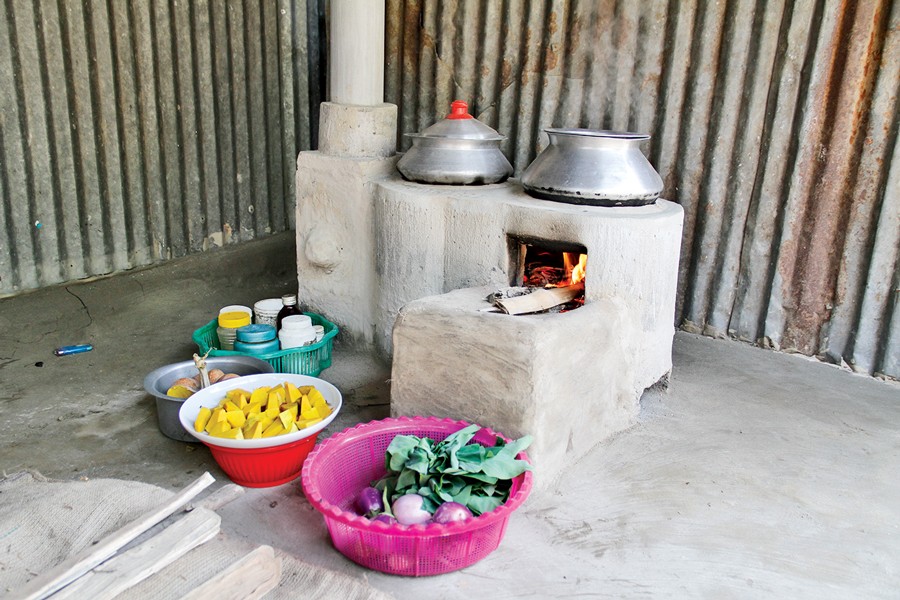In the wake of growing demand for improved cooking stoves (ICS), the Infrastructure Development Company Limited (IDCOL) has extended its ICS programme up to 2021, aiming to install 5.0 million such stoves in rural households.
The objectives of the project are to reduce the emission of greenhouse gas (GHG) and carbon monoxide (CO), use of solid fuel for cooking and the impacts of indoor air pollution, which will help achieve some Sustainable Development Goals (SDGs) related to the health of women and children.
IDCOL, a state-run financial institution, in association with its 66 partner organisations has been implementing the project in nearly 290 upazilas of the country.
Prime Minister Sheikh Hasina inaugurated the improved cooking stoves programme in May 2013. The project was jointly funded by the World Bank and the government of Bangladesh.
As of February 2018, around 1.48 million cook-stoves having high thermal efficiency was installed around the country.
During a recent visit to Shondhabari village at Gabtoli upazila in Bogura, this correspondent found that a sizeable number of the households have been using the improved cooking stoves since last year.
Dishari Unnayan Sangstha (DUS), a non-government organisation (NGO), being a partner of IDCOL, has been marketing, selling and installing the cook-stoves in the village.
Talking to the FE, Mohsena Begum of Maddhapara area said, "I saw such a stove in the kitchen of one of my neighbors, which seemed very efficient in producing heat and emits less smoke, compared to traditional stoves."
Six months ago, she and her three relatives have bought the stoves which were delivered and installed by the NGO.
M Rahman Sagar, executive director DUS, said, "We have been selling and installing improved stoves since 2016 in five upazilas of Bogura -- Adamdighi, Dhupchanchia, Gabtoli, Kahaloo and Shajahanpur."
He said DUS has already brought 150 households, out of 200, in Shondhabari under the ICS programme and now eyes to expand its coverage by raising awareness among people about health and environment issues. A total of 189,105 stoves have been installed in Bogura district.
He said DUS has been selling two types of stoves - single-compartment stove at Tk 800 and double-compartment stove at Tk 1,000 - with one-year repair warranty.
Talking about how the stove works, Shahinur Begum, a beneficiary of the project, said cooking in the first burner is done by the flames directly produced from fuel like dry straw, leaves or jute sticks. And the second burner runs on hot flue gases coming out of the first burner and the spent flue gases go out of the kitchen through a chimney.
IDCOL Executive Director and CEO Mahmood Malik said around 89 per cent of households in Bangladesh use biomass fuels in traditional cooking stoves (TCS) in which the fuel doesn't burnt efficiently, thus causing indoor air pollution (IAP).
According to the Bangladesh Council of Scientific and Industrial Research (BCSIR) study, the traditional stoves have thermal efficiency of only 5 to 15 per cent that primarily use fuel wood, dung and agricultural residues.


